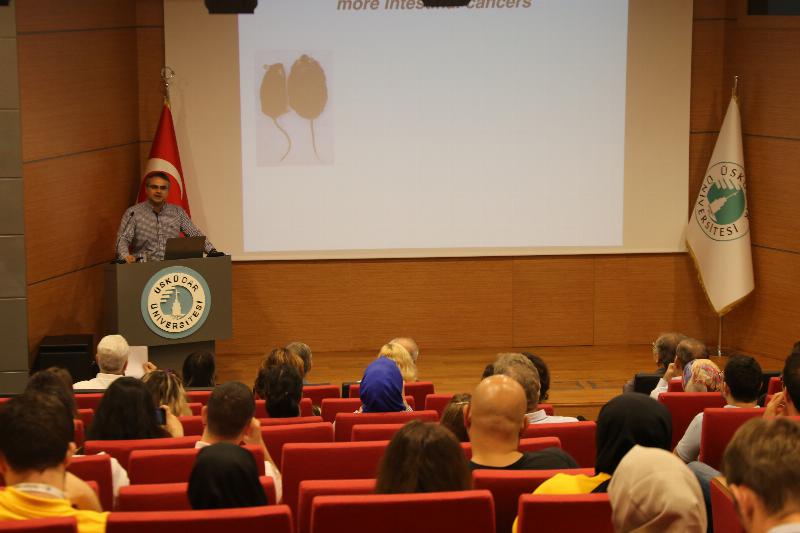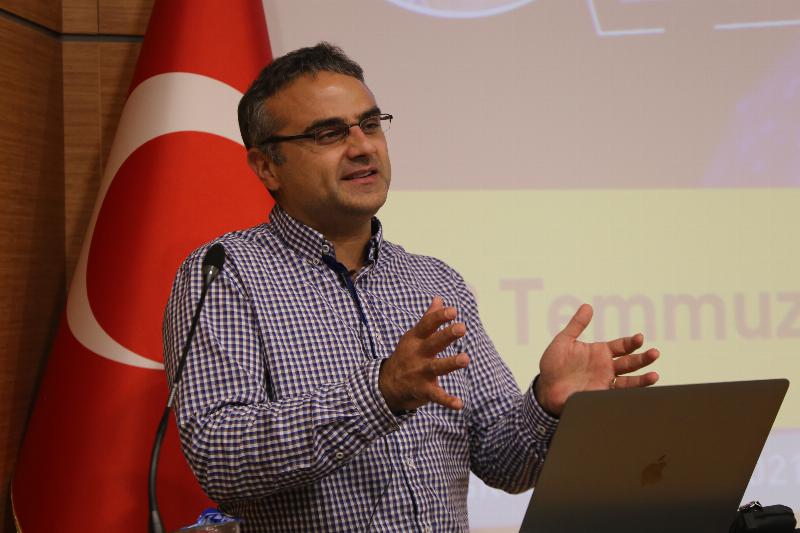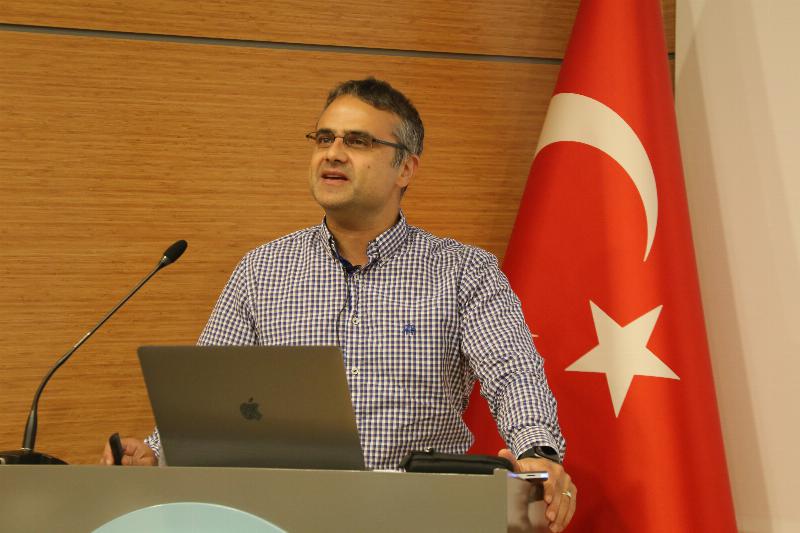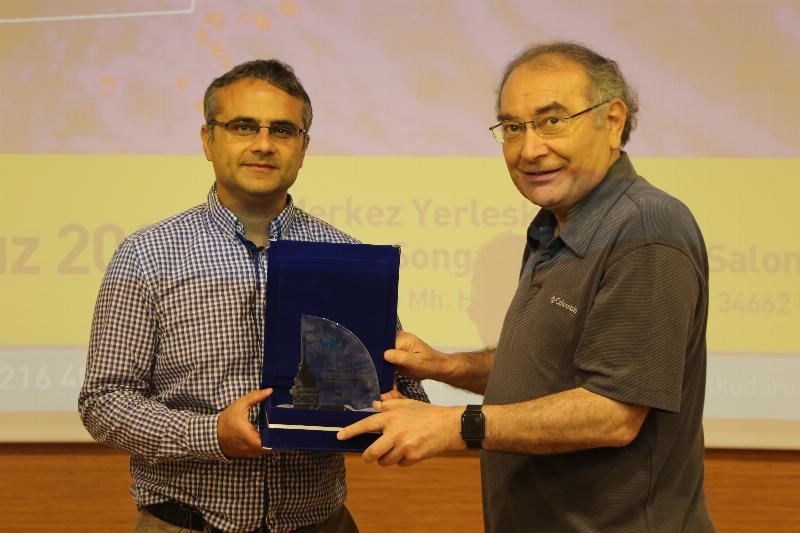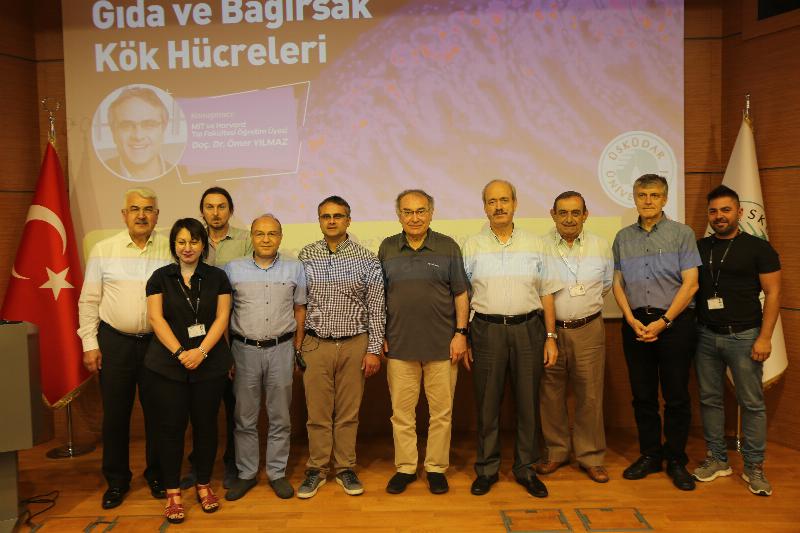“Food and Intestinal Stem Cells” were discussed at Üsküdar University
MIT and Harvard University Faculty of Medicine Faculty Member Assoc. Prof. Ömer Yılmaz gave a conference at Üsküdar University entitled ‘Food and Intestinal Stem Cells’.
The conference was held at Main Campus Ayhan Songar Conference Hall and Üsküdar University President Prof. Nevzat Tarhan, Vice Presidents Prof. Mehmet Zelka and Prof. Muhsin Konuk, Advisor to President Prof. Tayfun Uzbay, Dean of Health Sciences Faculty Prof. Şefik Dursun attended the conference. Assoc. Prof. Ömer Yılmaz gave crucial information to the participants about fasting and intestinal stem cells.
Intestinal stem cells were discussed in many ways
Assoc. Prof. Ömer Yılmaz explained intestinal stem cells at the beginning of his speech and said: “Stem cells in the intestinal epithelium are characterized as Lgr5 + and it is located in the crypt section that is neighbor with Paneth cells. These stem cells can be isolated and used in the formation of mini-intestinal organoid in culture environment. Paneth cells play a role in assisting the proliferation and differentiation of stem cells. If they are included in the culture environment, they increase organoid formation. One of the most important findings obtained from the studies, is the increase of organoid formation even in cultures without Paneth cells as a result of High Fat Diet (HAG).”
Effects of high-fat diet
Assoc. Prof. Yılmaz went on to mention the effects of the high-fat diet. He continued his conference as following: “This effect is exacerbated in the presence of Paneth cells. The observed effect was thought to be shown to be related to PPAR-delta receptor activation and this hypothesis was confirmed by observing the same effect as a result of the application of PPAr-delta agonist GW501516. PPAR-delta activation increases intestinal stem cell number and proliferation and it is essential in these processes. Interestingly, non-stem cell progenitor cells can also be induced through the same pathway and cause organoid formation.
Obesity-induced tumor formation
Assoc. Prof. Yılmaz continued as: “In obesity-induced tumor formations, unlike other inducers, there is a composite structure of both intestinal stem cell origin and non-stem cell that is "progenitor" cell origin. As a result, it has been shown that intestinal stem cells become independent from niche and non-stem cells acquire stem cell character. HMGCS2 is the most important target in intracellular pathways that is activated via PPAR-delta receptor. Interestingly, in the case of fasting, the number of stem cells increased 20-fold compared to normal, and increased 5-fold as a result of HFD. Beta-HB levels, which are the main product of the ketogenesis pathway in which the HMGCS2 enzyme constitutes the rate-limiting step, are characteristic of very dense in stem cells and are seen the least in Paneth cells. Stem cells in HMGCS2 knockout mice have shown to be transformed into Paneth cells which act as secretions.” He also gave information about obesity-related tumor formations.
Assoc. Prof. Ömer Yılmaz answered the questions after his presentation.
Üsküdar University President Prof. Nevzat Tarhan presented a plaque to Assoc. Prof. Ömer Yılmaz.
The conference ended after a family photo was taken.
Üsküdar News Agency (ÜNA)
